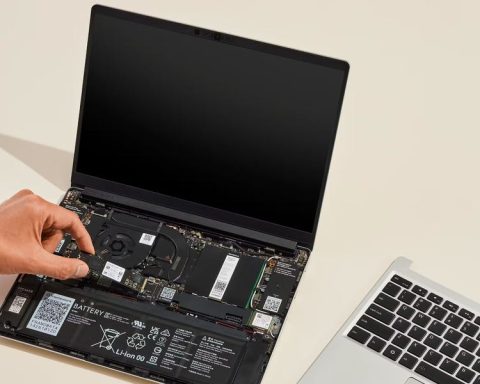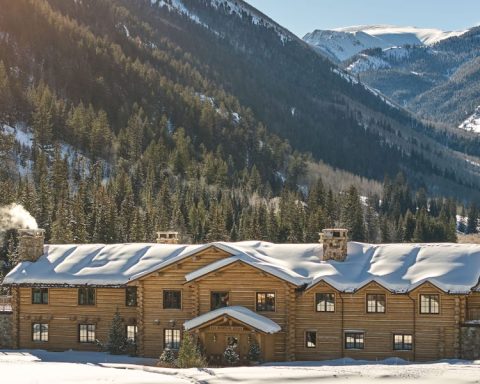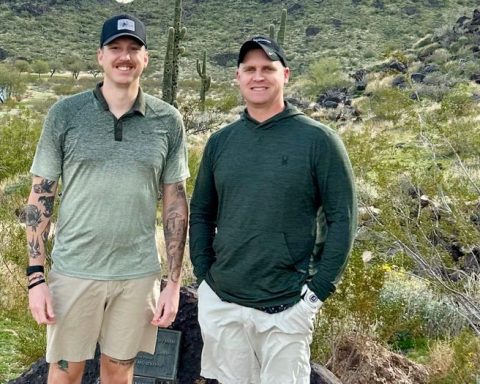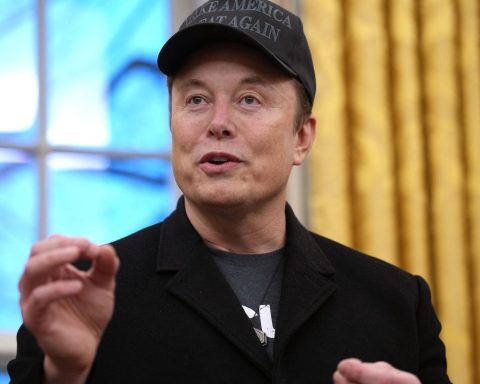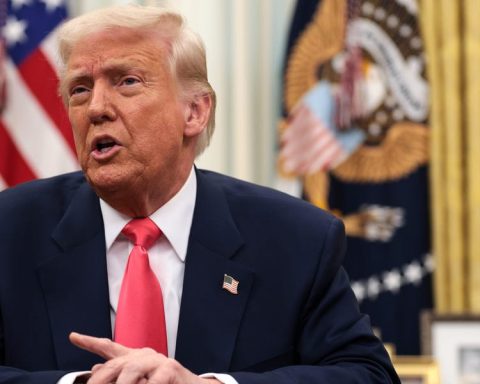Remon Vos relocated to the Czech Republic after the Iron Curtain fell, embarking on a journey to establish logistics parks. Over three decades of growth following the Cold War have transformed his company, CTP, into a powerhouse in the industrial real estate sector, positioning Vos as a billionaire. With the looming possibility of higher tariffs, his wealth could further increase.
In the weeks prior to President Donald Trump’s announcement of extensive tariffs affecting over 80 countries globally—including a 20% tariff on the European Union—Dutch billionaire Remon Vos expressed optimism regarding the potential impact of an impending trade war on CTP, his publicly traded industrial real estate firm that dominates central and eastern Europe. “Asian companies prefer to be situated in Europe to evade import tariffs. This is advantageous for us,” he mentioned during an earnings call on February 27, noting the influx of East Asian clients into CTP’s industrial parks for European market production. “For us, there’s a benefit.”
CTP experienced a setback due to the stock market turmoil triggered by Trump’s tariffs, with its stock plummeting by 12% between the announcement on April 2 and the implementation of tariffs a week later. Nevertheless, CTP outperformed many competitors. (Trump postponed the higher tariffs for 90 days on April 9, except for a 10% universal tariff on all countries, which caused a 4% rebound in stock prices.) Vos, who controls 73% of the shares, is estimated to be worth $6 billion, earning him a spot on Forbes’ 2025 World’s Billionaires list.
CTP has established a stronghold across ten countries in central and eastern Europe, with a particular emphasis on the Czech Republic and Romania, where land and labor costs are lower compared to western nations, making them less susceptible to fluctuations in the U.S. economy. This positions CTP favorably to profit from tariffs in the future. As countries worldwide potentially raise duties, businesses aiming to sell products in Europe may need to construct factories within the continent to avoid such tariffs—and CTP is well-positioned to capitalize on this trend. Currently, more than 10% of its properties are leased by Asian firms manufacturing for the European market, including Japanese conglomerate Hitachi and South Korean car maker Hyundai, with Asian clients accounting for 20% of the new leases signed in 2024.
Vos, aged 54, is always on the move, seeking new opportunities. On a Monday afternoon, he managed to carve out an hour to converse with Forbes. His typical schedule involves travelling by private jet across eastern Europe on weekdays, but Mondays are dedicated to working from CTP’s Prague headquarters, situated in a modern glass structure that contrasts sharply with the historic Habsburg-era buildings around it.
“I don’t have an office here; this is a meeting room. Tonight, I’ll fly to Romania. Next week, I’m heading to Asia. That’s just how it goes,” he explains, dressed in his usual attire of a white shirt, dark tie, and round-rimmed black glasses, with his blond hair neatly parted. “I visit the countries and collaborate with my colleagues to assess projects and land. Don’t talk to me about IT or HR. Talk to me about deals.”
For nearly thirty years, Vos has traversed the former Eastern bloc, executing real estate agreements. Since CTP was co-founded in Prague in 1998, he has propelled it to become the second-largest developer in the European industrial and logistics sector. The firm now oversees over 143 million square feet of industrial parks and warehouses, leased to notable clients including delivery service DHL, fashion retailer H&M, automobile manufacturer Renault, and healthcare diagnostics company Thermo Fisher Scientific. Additionally, CTP possesses more than 284 million square feet of land—more than its rivals—most of which is already zoned and permitted, strategically located next to current properties, allowing for rapid expansion when clients require additional space. After going public on the Amsterdam stock exchange in 2021, the firm reported $614 million in EBITDA (earnings before interest, taxes, depreciation, and amortization) on revenues of $900 million for 2024—an increase of 29% and 17%, respectively, compared to the previous year, driven by rising rental income.
Vos has built CTP through a relentless emphasis on growth, leveraging lower labor and land costs initially in the Czech Republic and subsequently extending throughout the region as these nations became EU members—a significant advantage for multinationals aiming to distribute products to Western Europe. The Covid-19 pandemic prompted a surge in near-shoring—where companies relocate production closer to their final product destinations—and CTP has emerged as one of the largest beneficiaries, attracting clients even from as far as China and the U.S. From the onset, Vos, who retained full ownership of the firm until its public listing following the acquisition of his late cofounder’s shares in 2019, has managed the enterprise with the vigor of a startup in the typically slower-paced realm of commercial real estate.
“Remon is the battery of the company; he’s the driving force. He brings in talent who are dealmakers and share his relentless work ethic,” remarks Wim Lewi, an analyst at Belgian financial services firm KBC Securities. “It’s akin to Navy SEALs; the whole setup operates like an army.”
Among one of CTP’s latest clients is Vitesco Technologies, an auto parts supplier from Regensburg, Germany, which invested $200 million in establishing an electric vehicle components factory at a CTP industrial park in Ostrava, Czech Republic. “He’s like a nuclear reactor concerning his energy,” adds Peter Ceresnik, CTP’s chief operating officer. “While it generates a lot of value, working with him can be quite demanding, as you need to be at the top of your game to keep up.”
Vos shows no signs of slowing. Last year, CTP secured $2.6 billion through loans and bond issues while raising $330 million in a new share offering, which helped fund the acquisition of industrial parks and land in Romania and Germany. With the ambitious target of reaching $1.1 billion in rental income by 2027—up from $770 million the previous year—the firm continues to expand, with over 19 million square feet of projects underway across nine countries.
“We believe that there are still valuable opportunities in the region,” Vos asserts. “If you have cash available, you can act decisively and close a deal quickly.” Not at all bad for a high school graduate who departed the Netherlands in his early 20s to sell dairy products in the Czech Republic, just after the Iron Curtain’s fall.
Born in the small town of Stadskanaal in northeastern Netherlands, Vos was raised by a student mother and a father who dealt in cars, moving frequently after his parents divorced when he was six. By age 12, he was already working weekends washing cars and cleaning at a hair salon, “so I could afford to buy beer and cigarettes,” he recounts dryly.
In his final year of high school in 1988, Vos’s school organized a trip to the then-Czechoslovakia. He registered and paid for the bus ticket but missed a crucial presentation about the trip a week prior. “I didn’t go to school much,” he admits. “A friend relayed the departure time. On that Sunday evening in October 1988, I arrived at the bus station only to learn that my bus had already left.”
That missed trip ignited a lasting intrigue about Czechoslovakia. After graduation, Vos partnered with his father selling car phones. By 1990, he had met a friend of his father’s, Johan Brakema, who had married a Czechoslovakian woman. Following her passing, he visited her family in Czechoslovakia, bringing along food, clothes, and appliances. Vos sought to join him on the next trip, marking his first journey there in 1991.
“We explored the entire country, and it was quite remarkable since there were very few paved roads,” he recalls. “It was autumn, with a misty, gray atmosphere, but I sensed immense potential there due to the absence of development.”
Motivated by this vision, Vos and Brakema initiated a small enterprise exporting Dutch goods to the Czech Republic (after the split of Czechoslovakia into two nations in 1992). An opportunity arose when one of their Dutch clients suggested establishing a steel parts factory in the Czech Republic. Vos accepted the challenge and relocated from the Netherlands with his wife in 1995. However, they faced a significant hurdle: the inability to find a suitable building for the factory or a developer to construct one for them.


